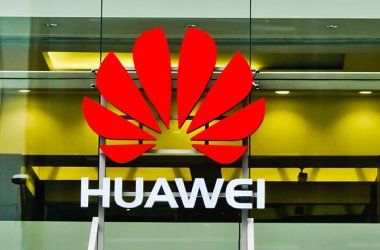Anas Naim, Head of Business Development at Orange Business Services MEA, has penned an exclusive op-ed for tahawultech.com – which outlines the need for intelligent cities with the population expected to double by 2050. 
The world’s city-dwelling population is expected to double by 2050, creating significant societal challenges as well as valuable business opportunities. At the same time, consumers are demanding a higher quality customer experience driven by data and complex intelligence management behind the scenes.
Smart cities have evolved rapidly in the region over the past couple of decades. In the early days, smart city projects focused on infrastructure, such as how super-fast broadband would revolutionize mobility, transport, retail, healthcare, and education.
The next iteration of cities focused mainly on solutions and architectures, while the current approach centers on data. In this third wave of evolution, Big Data and predictive analytics drive smart city projects, as cities now become more intelligent and generate vast swathes of data that can continuously improve services for residents and visitors.
This shift to the intelligent city also sees a shift in the business model. The need for intelligent cities to be able to evolve within a budget and to innovate while remaining efficient, could require different thinking moving forward.
With city populations set to continue growing and budgets being finite, the ‘smart city-as-a-service’ (SCaaS) model becomes more attractive and practical for companies delivering products and services to the urban population.
Indeed, an SCaaS approach eliminates upfront capex investment for them, streamlines operational management and an as-a-service approach and model can deliver next- generation services to scale, cost effectively.
SCaaS also helps reduce risk in a smart city project as you can rapidly introduce new services, assess the impact on your network and operations and make any necessary changes. Cities can use this model to deliver horizontal services across the entire city, by sharing data between traffic management and environmental health and safety departments, for example.
Agility is another overall benefit of SCaaS: in its Flexible Consumption Models Study, Deloitte found that 75% of organizations said as-a-service models made it easier and faster for them to introduce new solutions. And 70% said it allowed them to use technological tools they would otherwise find too expensive to afford. This also applies to smart cities.
Selecting the right ecosystem of partners is a significant step towards an as-a-service model for your city. It plays a vital role in enabling continuous innovation in the smart city space. An SCaaS approach could be indispensable in helping ensure Middle East projects remain on budget, well-managed and ready to handle any potential future disruptions.
Intelligent cities must be allowed to evolve and grow organically without being stifled or limited by the budget constraints. We look at smart cities as not just innovation engines but also as ecosystems that leverage collective intelligence. We need to encourage new ideas, and innovation should become a continuous process from which everyone and everything in the city benefits.
Regional cities take the intelligent approach
There are multiple smart city projects across the region and many of them are truly iconic and breathtaking in scale and ambition – from Abu Dhabi and Dubai in the UAE to Riyadh and NEOM in Saudi Arabia. Egypt’s ‘New Administrative Capital’ delivers a range of smart services including traffic management, management of smart utilities, such as electricity, water and gas supply, video surveillance and smart building services. Also included are innovative solutions, such as cloud-on-demand for companies and triple-play services for residents.
Looking ahead
Intelligent cities can run AI on top of their existing data platforms to create a more intelligent and responsive business environment. This opens to wider innovation and business opportunities with new use cases for the benefit of the local population. The smart city itself and the as-a-service model have specific objectives in common: both are designed around effectiveness, efficiency, and sustainability.
The global move to decarbonisation (with the target of becoming carbon neutral) means management and compliance is increasingly important and cities must respond – but greening cities comes at a cost, and digital technologies can offer solutions. This is a challenge but also clearly an opportunity to achieve a new level of sustainability based on intelligent cities.
Decarbonisation is becoming a driver for new use cases built on top of the existing data platform in the city as they seek to lower emissions, reduce energy consumption.
This shift means a new level of control of every impact of the city which is able to make intelligent recommendations on emissions and energy, supported by companies and sectors setting their own decarbonisation targets, such as the logistics/supply chain sector, as they also adopt ESG (environmental, social governance) targets and innovate and develop.
We have good reason to be optimistic. Intelligent cities are already reshaping traditional industrial operations in the production, distribution, and consumption of energy, water, waste, mobility/transportation, logistics, and more. It’s all about making cities even more intelligent.





